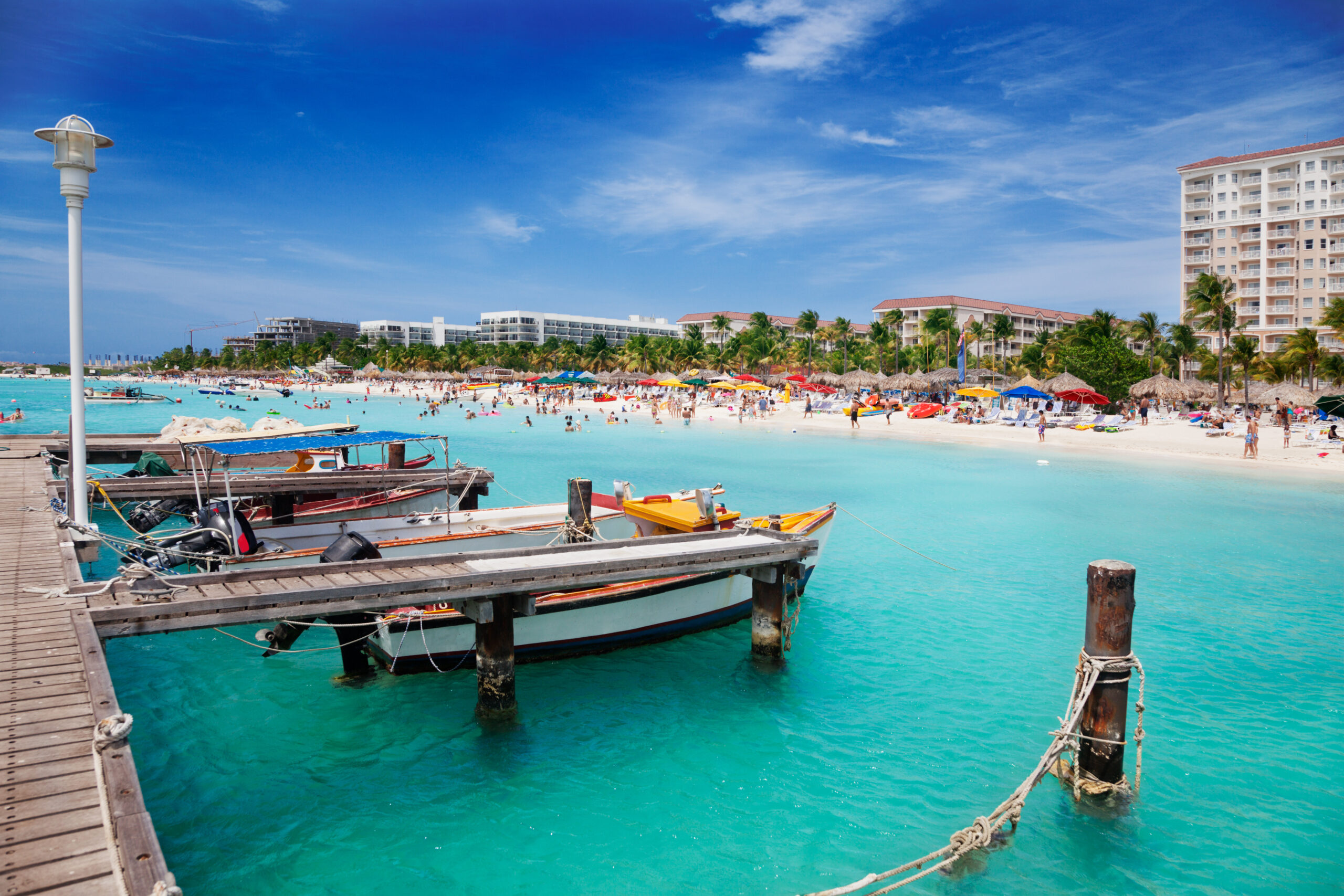TORONTO — Aruba is placing renewed emphasis on the Canadian travel market, reinforcing long-standing ties and positioning the island as a leader in responsible tourism.
Although Canada has not seen the same marketing presence from Aruba in recent years, the island is now re-energising its efforts, reflecting both market opportunity and shifting priorities within the destination’s long-term tourism strategy.
Speaking with Travelweek, Ronella Croes, CEO of the Aruba Tourism Authority, says Canada has historically been Aruba’s second-largest source market after the United States, representing approximately 5% of the island’s annual two million visitors.
“Canada continues to be an important market for us and we have indeed increased our efforts here in recent years as we focus on diversifying our market base,” says Croes. “There is an opportunity to introduce new visitors to Aruba and because we’ve been in the business for many years, we are certain that once introduced, they will become ambassadors for Aruba.”
So far in 2025, Canadians are answering the call in full, with a year-to-date increase of 10% in visitation. According to Croes, several factors are behind the growth, including strong direct airlift from Canada-based airlines. WestJet operates year-round service, while Air Canada offers non-stop flights outside the summer season, supplemented by U.S. connections. Aruba has also benefited from shifting travel trends, with many Canadian travellers choosing Caribbean holidays over U.S. visits in recent months.
Aruba’s Canadian arrivals stand out not only for volume but also for visitor profile. Canadians stay an average of 8.7 nights – above the destination average – and over 40% are repeat visitors. Moreover, the destination continues to see a growing number of Canadians purchasing property, booking long stays or travelling through timeshare ownership, reflecting a deepening loyalty and preference for accommodation options beyond traditional hotel stays.

Autentico Culinary Festival 2025
A Diverse Tourism Landscape
Aruba may be small – measuring roughly 19.6 miles long and six miles wide – but the variety of tourism experiences continues to expand. Palm Beach and Eagle Beach remain the most recognizable resort zones, home to a wide range of hotels including high-rise beachfront properties, while Eagle Beach continues to receive frequent international accolades as one of the world’s top beaches.
New hotel development has added more choice in recent months. The St. Regis opened earlier this year, while JOIA Aruba by Iberostar welcomed guests late last year. Another milestone for the island is the opening of Secrets Baby Beach Aruba, an all-inclusive resort in San Nicolas, situated at the southern end of the island.
San Nicolas itself has become a centre of emerging culture and tourism development. Once home to one of the island’s major industries, the district now showcases a vibrant Caribbean identity expressed through street murals, public art and an annual arts festival. In contrast, Aruba’s capital, Oranjestad, retains a Dutch character and continues to develop cultural offerings, including its growing annual culinary festival, Autentico.
“We consider ourselves a melting pot,” says Sjeidy Feliciano, Area Director, North America at the Aruba Tourism Authority. “We have more than 100 nationalities living on the island and that comes forward in the fusion of food. With more than 250 restaurants, fine dining experiences and chef-led concepts, the culinary scene is becoming a major draw for travellers, including Canadians.”
Sjeidy also noted the island’s diver active experiences and bounty of natural landmarks. Roughly 25% of the island is protected national parkland, providing opportunities for outdoor exploration and nature-based excursions. Sporting events, marathons, beach tennis tournaments and popular wedding and honeymoon travel continue to appeal strongly to Canadian travellers. Aruba’s location outside the hurricane belt adds further insurance for dependable weather and long-term visitor confidence.
Responsible Tourism Takes Centre Stage
While beaches, culture and resort experiences remain at the heart of Aruba’s appeal, the destination is undergoing an evolution driven by sustainability. Tourism accounts for more than 70 per cent of Aruba’s GDP and an even greater share of local employment, which has made responsible tourism a national priority.
Highlighting the island’s recent environmental initiatives, Croes says Aruba says the island passed a law in 2017 that prohibited single-use plastics and later introduced a ban on sunscreens containing oxybenzone, a chemical known to damage coral reefs, as well as added protected areas in addition to Arikok National Park.
“We need to up the awareness of being more mindful, and we need to ensure that the quality of visitation will continue – there is no other option,” says Croes. “We like to say, when you love Aruba, it will love you back. And you’ll see this messaging more in communications towards the consumer when on island.”
As part of the campaign, the ‘Aruba Promise’ was launched as a set of visitor guidelines designed to help travellers understand the destination’s priorities and how they can play a role in protecting it. These include promising to embrace a slower pace, being respectful, considering their footprint on the island and travelling mindfully.
As Croes notes, this mindful approach to tourism comes at the perfect time, citing data from Aruba’s recent Impact Report that found that among Canadian travellers surveyed, 96% believe responsible tourism is important, and 97% say they are willing to take at least one positive action to help protect a destination. However, only 16% feel they have been given clear guidance from the travel and tourism industry on how to do so.
“We see this as an opportunity for us,” says Croes. “We want to make sure our visitors know what they can do and what we value as inhabitants of Aruba.”

Palm Beach, Aruba
The Ecosystem Behind the Strategy
Aruba’s sustainable tourism approach extends throughout its tourism sector. Airlines, resorts, tour operators and other local providers participate in training, workshops and green certification programs. Many major hotels hold third-party certifications such as LEED or Green Globe, while the airport itself holds sustainability accreditation and features large-scale solar installations.
The Aruba Certification Program offers training for hospitality staff across the island, while the Aruba Excellence Foundation provides further professional development, including modules on environmental stewardship.
In addition, a dedicated Travel Academy provides Canadian travel advisors with product knowledge and updates, including modules on the destination’s responsible tourism approach. A Canadian representation team further supports advisors, bridal shows and other trade-facing initiatives.
When asked how the cruise sector aligns with Aruba’s renewed sustainability efforts, Croes says that while hotel growth has progressed, cruise tourism remains intentionally controlled.
“There have been no plans to expand the cruise port, nor is it our intention to expand it. But we continue to work with the cruise industry to ensure that visitors are satisfied and that their needs are being met while supporting sustainable development,” she says.
Croes also notes Aruba is largely focused on attracting smaller luxury cruise lines like Seabourn and Ritz-Carlton to maintain an intimate, more authentic cruise experience.
For more information about travel to Aruba, go to www.aruba.com. To view the Aruba Promise, click here.

